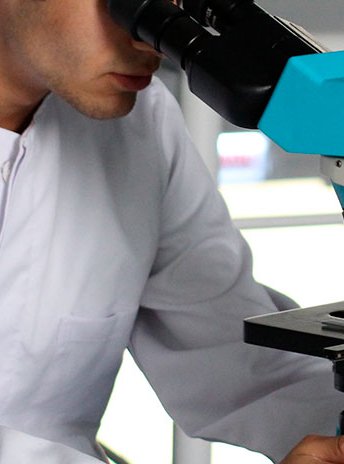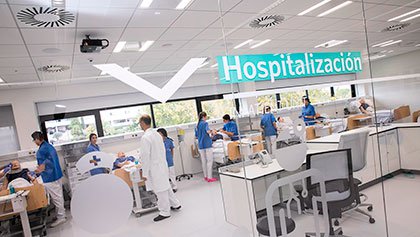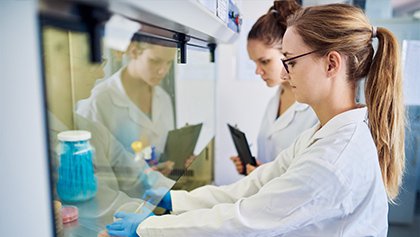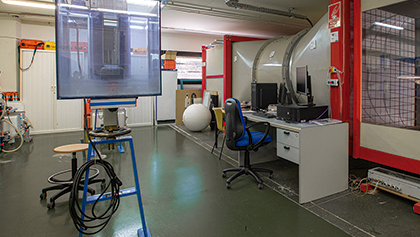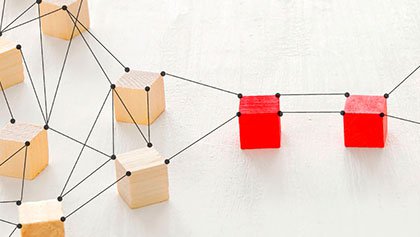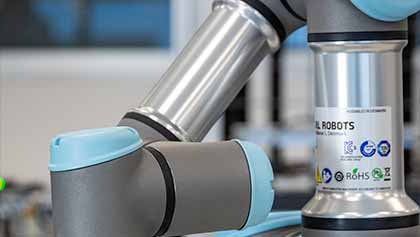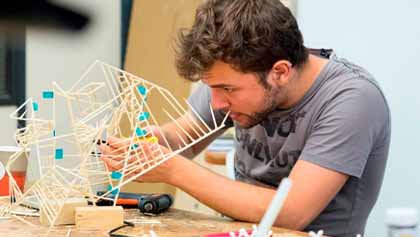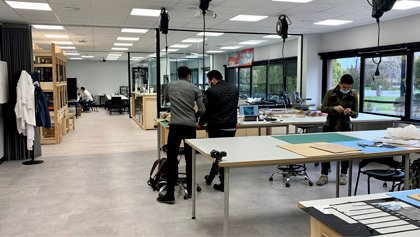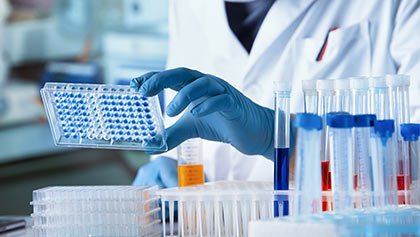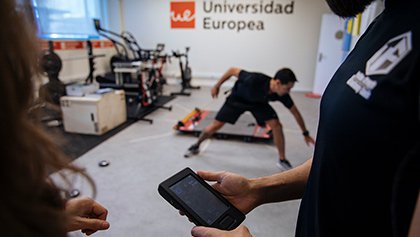Research in Numbers
116
From 4 major areas of knowledge, made up of more than 700 researchers
6
In which 27 doctoral theses were defended in 2020
984
In the year 2020 (798 in JCR/SJR, 561 in Q1/Q2)
Resources for Research
The Universidad Europea has a series of procedures, resources, and tools to support research, which are detailed below.
On-site and virtual Centre for Resources for Learning, Research and Innovation (abbreviated CRAI in Spanish)
Alongside the library, the Centre is an important support hub for researchers. It stores the institutional repository of publications (ABACUS), contributing to the dissemination of research outcomes. It also organises training sessions for individuals who wish to get started in the world of research and bibliographic search.
Committee for Ethics in Research
The Committee ensures the protection of individuals’ fundamental rights; the welfare of animals and the environment; and respect for the ethical principles and commitments held by the scientific community. It is made up of members of the Department for Research and Doctoral Studies, as well as experts from various areas of knowledge.
Call for Research Groups
The Universidad Europea annually launches a Call for Research Groups, open to all the staff from its three campuses (Madrid, Valencia and the Canary Islands). The Research Groups in the different areas of knowledge are classified as either consolidated, emerging or in training. In the 2020 call for proposals, 33 new Research Groups were created in the 4 main areas, making a total of 116 groups.
Call for Internal Research Projects
In its commitment to support Research Groups, the Universidad Europea launches a Call for Internal Research Projects in order to fund and support high-quality research projects, aligned with the University’s research strategy and proposed by members of its Research Groups. The evaluation of these projects is external and competitive. This call promotes the incorporation of students from the Universidad Europea in research projects through the awarding of grants, so that they can acquire highly practical training and begin their research careers with our researchers.
In the 2020 call, 38 internal projects were accepted, with more than 200 researchers involved.
Call to Promote Research among Professors
The aim of this call is to free up some teaching time for those professors with a clear research profile (backed by their research outcomes). The call will allow them to grow in their scientific career both within the University itself and at other research centres, with which they can establish collaborations and gain access to new technologies.
The amount of teaching time freed up for research per professor is dictated by an objective and transparent assessment, where data such as the number of scientific publications, participation in research projects and collaboration in doctoral programmes are measured.
Call for Six-Year Terms
Since 2014, Universidad Europea has been working on evaluating the research activity of its teaching and research staff (on contract or otherwise permanently linked to the University), through an agreement signed with the National Agency for Quality Assessment and Accreditation (abbreviated ANECA in Spanish).
This evaluation is carried out within the framework of a call that the University makes in ANECA’s annual publication. The body that carries out the evaluation is the National Commission for the Evaluation of Research Activity (CNEAI in Spanish), whose president is the Director of ANECA. To date, Universidad Europea has 80 six-year-term researchers that have been positively evaluated by CNEAI—62 from the Universidad Europea de Madrid, 11 from the Universidad Europea de Valencia and 7 from the Universidad Europea de Canarias.
Infrastructures
Universidad Europea has both basic and advanced facilities and infrastructures for all professionals and students to carry out their research projects. We have several labs spread over the different campuses and schools, specialised in the University’s various research areas.
Support for the Dissemination of Research Results
Universidad Europea is committed to the communication and dissemination of research results in order to expand their reach and share knowledge. To this end, the University has a documentation repository called ABACUS where all of its scientific publications, doctoral theses, communications, etc. are stored, facilitating greater dissemination and citation of research work.
The Universidad Europea of Madrid also offers its employees a team of methodologists, statisticians and medical writers to help in the preparation and writing of scientific articles, thus promoting the publication of research results in international journals.
Likewise, the Universidad Europea financially supports the publication of scientific results in high-impact and open-access journals, as well as participation in research conferences for the communication of project results. Additionally, the Department of Communication provides support for the dissemination of scientific results and the work of our researchers.
In 2020, the researchers actively participated in the publication of three journals—VALUE, REIA and KRONOS—contributing with various articles and facilitating the dissemination of science to society.
Research and Doctorate School
In 2020, the Universidad Europea de Madrid had 5 Accredited Doctoral Programmes:
- Programa de Doctorado en Actividad Física y Deporte
- Programa de Doctorado en Biomedicina y Ciencias de la Salud
- Programa de Doctorado en Ingeniería de Control y Sistemas Inteligentes para la Salud y el Medioambiente
- Programa de Doctorado en Medicina y Cirugía
- Programa de Doctorado en Ingeniería de Instrumentación Industrial Aplicada a Transporte Inteligente y Energía Sostenible
In addition, verification has been obtained for a new Inter-University Doctorate Programme in Innovación Socioeducativa (“Socio-educational Innovation”), in which the Universidad Europea de Madrid, the Universidad Europea de Valencia and the Universidad Europea de Canarias are participating, to be implemented in the 2021-22 academic year. In 2020 we had 275 students enrolled in our doctoral programmes.
Students enrolled in doctoral programmes offered by our University join one of the Research Groups, acquiring the status of Researcher in Training. The Research and Doctorate School of the Universidad Europea de Madrid accompanies doctoral students until they present their doctoral thesis before a panel of judges. The School is established as the supervisory body through the signing of an official document, which is also signed by the doctoral student, their tutor and the director. During 2020, a total of 27 doctoral theses were defended at the Universidad Europea de Madrid—6 in the Programa de Doctorado de Actividad Física y Deporte, 19 in the Programa de Doctorado en Biomedicina y Ciencias de la Salud, and 2 in the Programa de Doctorado en Ingeniería de Control y Sistemas Inteligentes para la Salud y el Medioambiente.
In addition, professors from the University participate in the co-supervision of doctoral theses carried out in other universities, both national and international, in those areas in which the University does not have its own doctorate programme.
Labs
These are some of the labs in which our researchers carry out their studies:
